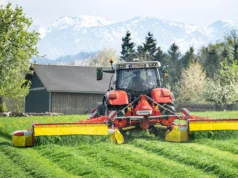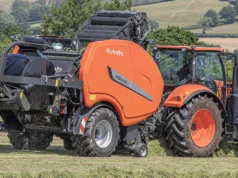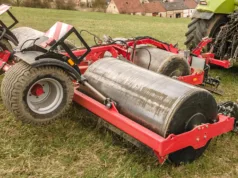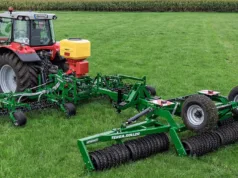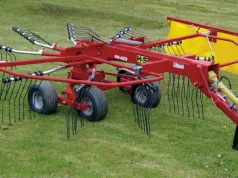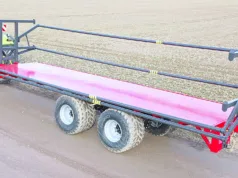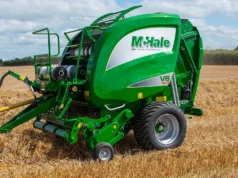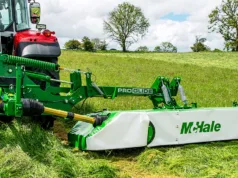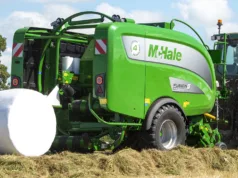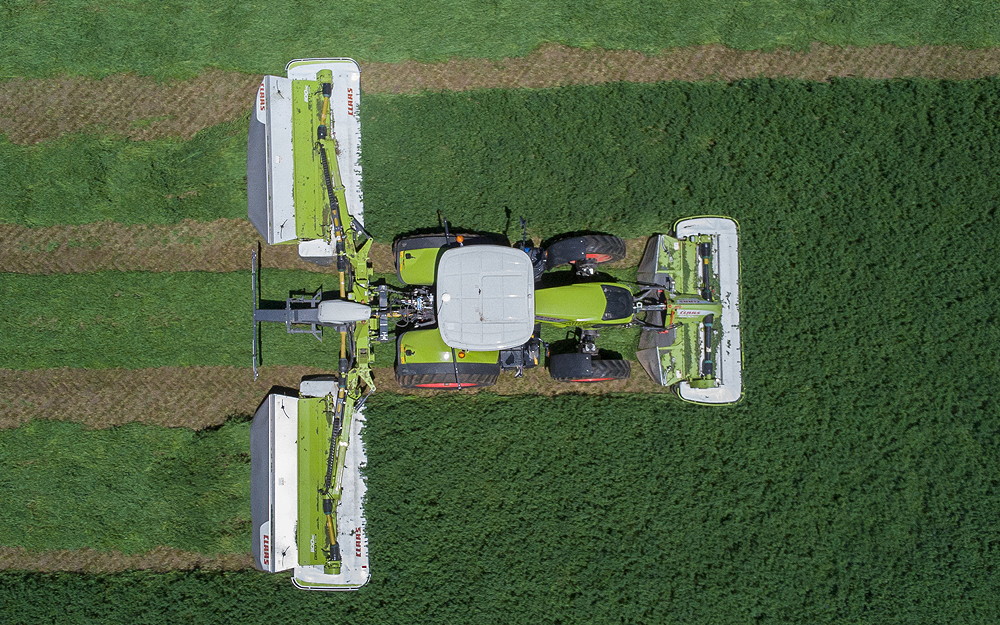
A US farmer is claiming a record for the largest area mown in eight hours after cutting down a total of 141.1ha of alfalfa with a Claas Axion 800 and Disco 1100 RC with roller conditioner. If accepted by Guiness World Records, the previous world record will have been surpassed by more than 40ha.
Just after midday on July 1, 2018, Tate Mesbergen, from Mesbergen Farms, Greely, Colorado, set about creating a new world record with the Claas combination. Exactly eight hours later, he climbed out of the cabin of his tractor as a potential record holder. His support team and impartial witnesses confirm that Tate mowed a total of 141.1 hectares in four different fields (the previous record was 100.6ha).
With a maximum speed of 30km/hr in the field and more than 50km/hr travelling from field to field, Mr Mesbergen mowed an average of 17.6 ha/ha during his world record attempt. The crop yielded an average 5.24t/ha. Claas will be sending the necessary documents to Guinness so that the world record can be officially confirmed.
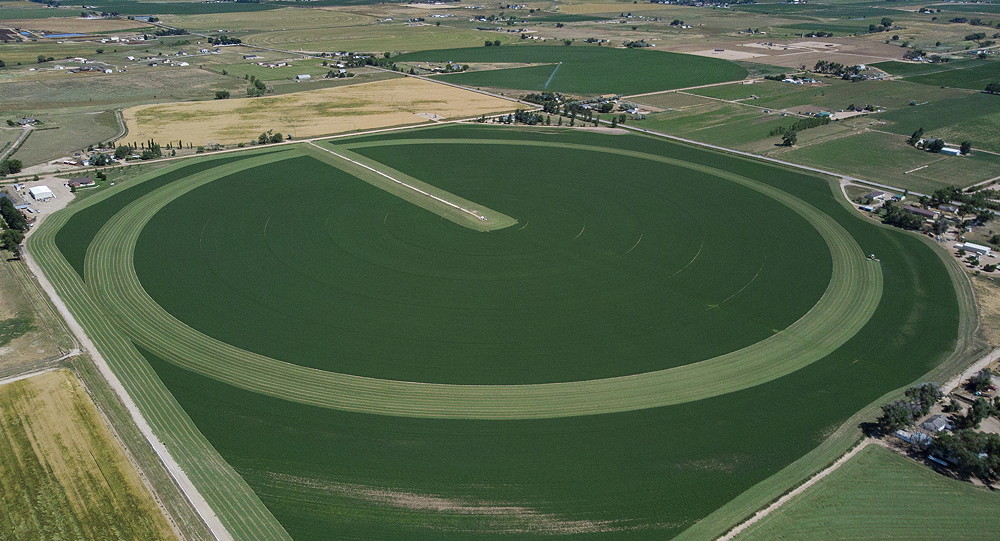
The day before the attempt, there was a thunderstorm with heavy showers of 12.7mm of rain. This meant that the subsoil in the first field was significantly wetter than usual. The start was delayed by a few hours, and during his record attempt, Mr Mesbergen also made two unplanned stops. The first was between the first and second field.
“I hit a piece of concrete on the first field and had to check whether the mower was damaged,” he said. A quick examination showed that no harm was done, and not one blade had to be replaced during the record attempt. The second interruption took place to check that the Disco mower unit was correctly folded before it was transported along the road to the last field.
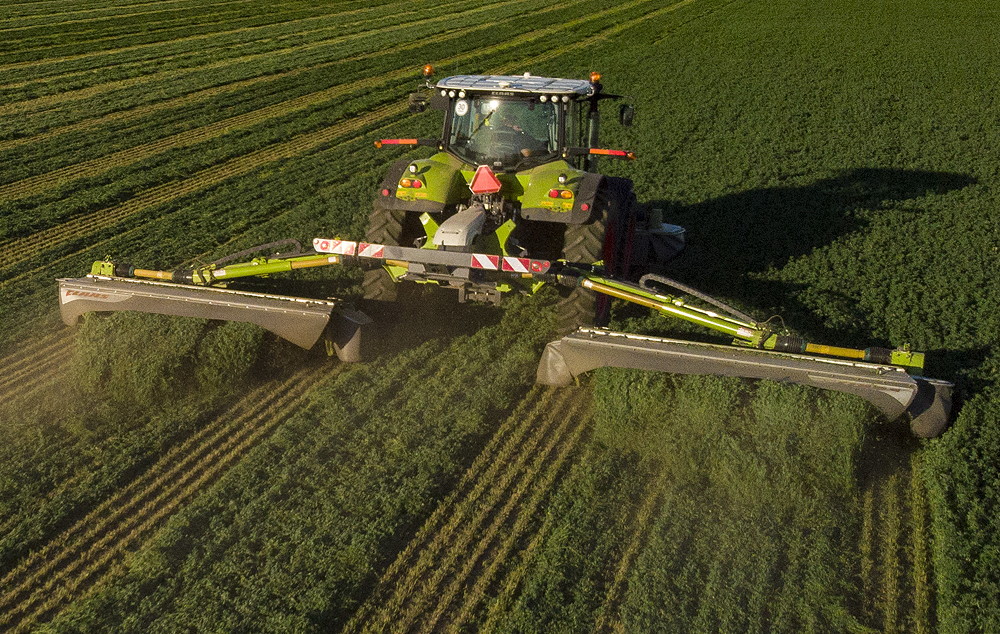
Claas said the previous world record was set on grass, not alfalfa, and using a mower without a conditioner. “That was clearly an easier task,” the company added. “The Disco 1100 RC has a conditioner with two V-shaped interlocking polyurethane rollers that compress the hard stems while simultaneously preserving the precious leaves. This reduces the wilting time required and guarantees maximum feed value, because the leaves are preserved.”
For more information visit: www.claas.co.uk.


